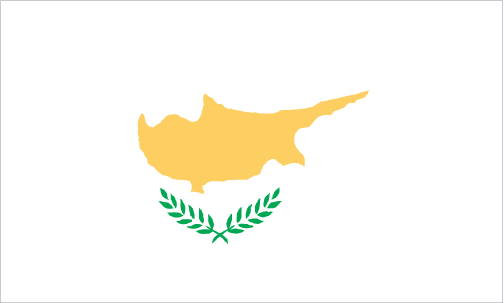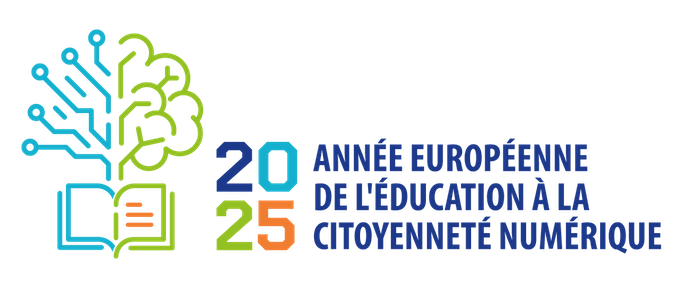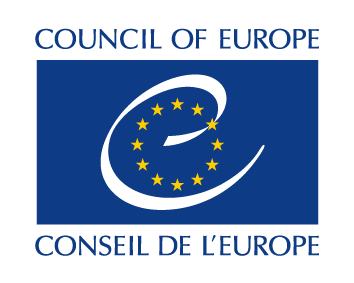- Digital Skills National Action Plan 2021-2025. Designed to promote digital literacy and is aligned with the European Union’s (EU) Digital Decade Policy Programme 2030. The objectives of this Action Plan include reforming the education system through developing digital skills starting in elementary school and creating awareness on the importance of digital skills. Lastly, another objective of this action plan is to ensure that the local population actively participates in the digital economy. Furthermore, the design of this policy took into account the European Digital Skills Framework for Citizens (DigComp). Digital Cyprus 2025 by Deputy Ministry of Research, Innovation and Digital Policy is based on the Digital Skills National Action Plan and it focuses on strategies that could be employed to achieve the digital transformation of Cyprus. This strategy is based on the National skills Action Plan with guiding principles similar to those in the CoE recommendation. Some of the objectives of this strategy are to create a democratic and digitally inclusive Cyprus.
- 2021 National Recovery and Resilience Plan and its Strategy « Towards a Digital Age » supports the digital transformation of schools and the development of STEM skills.
- 2020 National Strategy on Artificial Intelligence aims to upgrade the education system through the development of digital and AI skills in schools
- Other strategy documents supporting the development of digital skills in the population: 2018-2023 National Strategy for Better Internet for Kids in Cyprus. Digital competency frameworks: The government’s digital education strategy and digital skills framework is guided by the EU digital competence frameworks, namely the Digital Competence for Citizens Framework (DigComp); Digital Competence for Organisations Framework (DigCompOrg); and Digital Competence Framework for Educators (DigCompEdu), having contributed to their development and implementation. The Digitally Supported Learning Environment additionally utilises these frameworks for its activities, also supporting the Assessment of Transversal Skills (ATS2020) and development of student ePortfolios.
- The 2020-2025 National Digital Strategy sets forth the aspirational vision for Cyprus to become a fit-for-the-future society and knowledge-based economy enabled by digital and emerging technologies that will drive sustainable economic growth, social prosperity and international competitiveness. The Cyprus digital agenda aims to develop strong digital competency within the government first, and then other public sectors (including education), with an objective to integrate ICT to support the educational process. Online abuse and cyberbullying: The protection of students in online/digital education environments is supported in the 2018-22 National Strategy for the Prevention and Management of School Violence and National Strategy and Action Plan to Combat Sexual Abuse, Child Exploitation and Child Pornography. The 2018-23 National Strategy for Better Internet for Kids in Cyprus, which is guided by the EU’s Better Internet for Children strategy, additionally aims to educate youth on the responsible use of the internet, and applies to students, teachers, parents, and school systems. Schools are called to strengthen their cybersecurity and provide learners with cybersecurity skills, offer help/support services to students on cybersafety issues, ensure a safe online learning environment, and reduce cases of cyberbullying and online abuse.
Country profile list

Cyprus
- The Digital Cyprus 2025 by Deputy Ministry of Research, Innovation and Digital Policy, The Digital Citizens’ Academy, The National Coalition for Digital Skills and Jobs to pomote the importance of digital skills. The Digital Academy for Citizens is an online platform for learning digital skills, featuring a digital skills self-assessment tool and an online library. The National Coalition for Digital Skills and Jobs was created as part the Digital Skills National Action Plan 2021-2025 to promote cooperation with other stakeholder and avoid duplication of initiatives promoting digital literacy. This coalition has members from a different sectors of the economy such as public and private sectors, academia, research centres, the research and innovation ecosystem, and civil society organizations. Workshops, seminars, and awareness campaigns focusing on digital literacy and its importance. Digital Cyprus 2025 by Deputy Ministry of Research, Innovation and Digital Policy. In March 2020, Cyprus created a new ministerial position, the Minister of Research, Innovation, and Digital Policy, to oversee the improvement of digital competence in government, society, education, and other sectors.
- 2021 National Recovery and Resilience Plan and its Strategy « Towards a Digital Age ». see more information at source below
- 2020 National Strategy on Artificial Intelligence. see more information at source below
- Other strategy documents supporting the development of digital skills in the population: 2018-2023 National Strategy for Better Internet for Kids in Cyprus. According to the national authorities responding to the online survey, Cyprus has made efforts to promote the implementation of the Council of Europe’s Recommendation CM/Rec(2019)10 on Digital Citizenship Education (DCE) across formal, non-formal, and informal education settings, though progress is ongoing rather than fully completed.
- In formal education settings, Cyprus has integrated aspects of digital citizenship into the school curriculum. This is part of broader digital literacy strategies aimed at equipping students with the skills and knowledge to navigate the digital world responsibly. The Ministry of Education, Culture, Sport, and Youth has worked to incorporate digital competencies and democratic values into its educational framework. The promotion of these principles has been reinforced by Cyprus’s participation in European programs like eTwinning and Erasmus+, which encourage collaborative digital projects among schools and foster digital citizenship skills. In addition, the Cyprus Pedagogical Institute / Ministry of Education, Sport and Youth run every year a number of programs at schools that aim to advance digital skills and enhance civic participation such as the programs E-Safe Schools, Young Coaches for the Internet, Innovative Schools, Recording Memory-Documentary production by students, Student Web Radio. Also, annual conferences, day-events, student music, radio and video contests, and seminars on digital and media literacy for teachers and students, are implemented throughout the school year.
- In non-formal education settings, Cyprus has been involved in initiatives targeting youth outside the traditional classroom. For example, through the Youth Board of Cyprus, young people have access to various programs and workshops that emphasize digital skills, responsible online behaviour, and democratic engagement in digital spaces. These programs align with the DCE principles, providing avenues for youth to engage in civic life through digital platforms.
- Informal Education: While Cyprus has not explicitly referenced CM/Rec(2019)10 in specific informal education strategies, the promotion of digital literacy and responsible citizenship extends into broader public initiatives. Awareness campaigns and community programs encourage citizens of all ages to adopt safe and responsible digital practices. Civil society organisations and the public sector are increasingly focusing on digital rights and responsibilities as key components of citizenship in the digital age.
- Educational Campaigns in Schools: Cyprus has conducted national campaigns aimed at enhancing digital skills and awareness among students, through the various actions of the Cyprus Safer Internet Centre. These campaigns emphasize the responsible use of technology, cyber safety, and the importance of participating in digital society as active and informed citizens. This aligns with the broader goals of DCE by helping students develop the skills to critically assess information online and engage in digital communities responsibly.
- Youth Workshops and Seminars: The Youth Board of Cyprus has been active in organising workshops and seminars for young people, focusing on digital literacy and the importance of democratic engagement online. These events have often included interactive activities designed to teach youth about their digital rights and responsibilities, fostering an environment of awareness about digital citizenship.
- Public Awareness Campaigns: Public campaigns have targeted both the general population and specific groups such as parents and educators. These campaigns focus on topics such as internet safety, digital well-being, and the ethical use of technology. For example, seminars and media outreach programs have aimed at equipping parents with tools to guide their children in safe digital practices.
- Collaboration with International and European Programs: Cyprus has also participated in various international and European initiatives that promote digital citizenship, including the European Union’s Safer Internet Day celebrated every year in February which raises awareness about safe and responsible use of online technologies. These events often incorporate elements of the DCE framework, advocating for safer digital environments and informed digital citizenship.
- Teacher Training and Resources: Cyprus is promoting digital citizenship through teacher training programs. These initiatives provide educators with the necessary tools and resources to integrate digital citizenship education into their classrooms. While these activities contribute to raising awareness about digital citizenship, they are not always framed specifically in terms of the CM/Rec(2019)10 recommendation. Instead, they are part of Cyprus’s broader efforts to build digital literacy and responsible citizenship across formal, non-formal, and informal educational settings.
- The Cultivation of Digital Citizenship through Media Literacy conference
Sources
- https://digitalcoalition.gov.cy/wp-content/uploads/2023/05/Digital-Skills-National-Action-Plan-2021-2025-2.pdf
- https://www.dmrid.gov.cy/dmrid/research.nsf/all/927EA351714F99EDC22587CE0028C090/$file/Digital%20Strategy%202020-2025.pdf?openelement#:~:text=The%20vision%20statement%20for%20the,social%20prosperity%20and%20international%20competitiveness.%22
- https://www.pio.gov.cy/assets/pdf/newsroom/2021/09/6.9.2021_parousiasi%20sxediou%20anakampsis%20kai%20anthektikotitas.pdf
- https://dec.dmrid.gov.cy/dmrid/dec/ws_dec.nsf/All/21122CD12D52BD70C2258505002E43D1/$file/%CE%A3%CF%84%CF%81%CE%B1%CF%84%CE%B7%CE%B3%CE%B9%CE%BA%CE%AE%20%CE%A4%CE%9D_%2001%202020.pdf
- https://www.saferinternetday.org/in-your-country/cyprus
- https://esafeschools.pi.ac.cy/introduction/
- https://cyberalert.cy/Media/Attachments/eggrafo-ethinikis-stratigikis-asfaleia-diadiktio.pdf
- https://medialiteracy.pi.ac.cy/en/
- https://onek.org.cy/en/programmata-ypiresies/ethelontismos-symmetochi/e-participation/
- https://cybersafety.cy/activities/saferinternetday/
- https://medialiteracy.pi.ac.cy/en/events/kalliergeia-psifiakis-politotitas-2021/
- The Digital Cyprus 2025 by Deputy Ministry of Research, Innovation and Digital Policy: see more information at source below
- Digital Cyprus 2025 by Deputy Ministry of Research, Innovation and Digital Policy: No Information was found
- 2020 National Strategy on Artificial Intelligence. The National Strategy on Artificial Intelligence (AI) 2020, another key part of the national digital transformation, aims to promote AI’s integration into various sectors of the economy. Although this strategy highlights international collaboration and ethical AI development, regular evaluations on its implementation are yet to be publicly documented. Some measures in this strategy include the creation of digital innovation hubs and public-private partnerships to boost research and development.
- Other strategy documents supporting the development of digital skills in the population: 2018-2023 National Strategy for Better Internet for Kids in Cyprus. No information was found. Moreover, the national authorities responding to the online survey indicated that as of the latest available information, Cyprus has not established a formal system for regularly assessing the impact of legislation and policies directly implementing the Council of Europe’s Recommendation CM/Rec(2019)10 on Digital Citizenship Education (DCE). While the country has integrated DCE principles into broader educational reforms and strategies, there is no specific mention of structured, recurring evaluations tied explicitly to this Recommendation. However, Cyprus, like other Council of Europe member states, is involved in the wider ongoing review processes led by the Council of Europe, which includes evaluating how well countries have implemented DCE principles. These assessments tend to be collaborative efforts that collect data from member states to determine progress and areas for improvement. Cyprus has participated in these multilateral reviews, but there is no evidence of a dedicated national assessment framework that focuses solely on DCE. Most of the evaluations carried out in Cyprus are related to broader digital competency frameworks and digital education reforms, such as the implementation of the European Union’s Digital Competence Framework for Citizens (DigComp). These reviews are more focused on the practical impact of digital skills education rather than the holistic DCE framework that includes democratic engagement and digital rights.
Sources
- https://www.gov.cy/dmrid/?openelement
- https://dec.dmrid.gov.cy/dmrid/dec/ws_dec.nsf/All/21122CD12D52BD70C2258505002E43D1/$file/%CE%A3%CF%84%CF%81%CE%B1%CF%84%CE%B7%CE%B3%CE%B9%CE%BA%CE%AE%20%CE%A4%CE%9D_%2001%202020.pdf
- The Digital Skills National Action Plan 2021-2025. The stakeholders involved in the design of this policy include the Deputy Ministry of Research, Innovation and Digital Policy, the Ministry of Labour, Welfare and Social Insurance, the Ministry of Education, Culture, Sport and Youth, the Cypriot Academy of Public Administration, the Human Resources Development Authority, the Digital Security Authority, business associations, universities, and businesses
- Digital Cyprus 2025 by Deputy Ministry of Research, Innovation and Digital Policy: See Q3 above
- 2020 National Strategy on Artificial Intelligence. See Q3 above
- Other strategy documents supporting the development of digital skills in the population: 2018-2023 National Strategy for Better Internet for Kids in Cyprus.
Sources
- https://digitalcoalition.gov.cy/wp-content/uploads/2023/05/Digital-Skills-National-Action-Plan-2021-2025-2.pdf
- https://www.dmrid.gov.cy/dmrid/research.nsf/all/927EA351714F99EDC22587CE0028C090/$file/Digital%20Strategy%202020-2025.pdf?openelement#:~:text=The%20vision%20statement%20for%20the,social%20prosperity%20and%20international%20competitiveness.%22
- https://cyberalert.cy/Media/Attachments/eggrafo-ethinikis-stratigikis-asfaleia-diadiktio.pdf
- The Digital Skills National Action Plan 2021-2025. The following stakeholders are involved in the implementation of the Digital Skills National Action Plan 2021-2025; Deputy Ministry Research, Innovation, & Digital Policy, Ministry of Labour, Welfare and Social Insurance, Ministry of Education, Culture, Sport and Youth, Cyprus Academy of Public Administration, Human Resources Development Authority, CITEA (Cyprus Association of Computer Enterprises), CCS (Cyprus Informatics Association). The strategy is coordinated by the Deputy Ministry of Research, Innovation and Digital Policy with the active involvement of other public sector organizations, as well as business, Academic sector, scientific community and social partners.
- Digital Cyprus 2025 by Deputy Ministry of Research, Innovation and Digital Policy: See Q3 above
- 2020 National Strategy on Artificial Intelligence. See Q3 above
- Other strategy documents supporting the development of digital skills in the population: 2018-2023 National Strategy for Better Internet for Kids in Cyprus. No information was found
Sources
- The Digital Cyprus 2025 by Deputy Ministry of Research, Innovation and Digital Policy: see more information at source below
- Digital Cyprus 2025 by Deputy Ministry of Research, Innovation and Digital Policy: See Q3 above
- 2020 National Strategy on Artificial Intelligence. see more information at source below
- Other strategy documents supporting the development of digital skills in the population: 2018-2023 National Strategy for Better Internet for Kids in Cyprus. see more information at source below
Sources
- https://www.gov.cy/dmrid/?openelement
- https://dec.dmrid.gov.cy/dmrid/dec/ws_dec.nsf/All/21122CD12D52BD70C2258505002E43D1/$file/%CE%A3%CF%84%CF%81%CE%B1%CF%84%CE%B7%CE%B3%CE%B9%CE%BA%CE%AE%20%CE%A4%CE%9D_%2001%202020.pdf
- https://cyberalert.cy/Media/Attachments/eggrafo-ethinikis-stratigikis-asfaleia-diadiktio.pdf
- The National Coalition for Digital Skills and Jobs was created as part the Digital Skills National Action Plan 2021-2025 to promote cooperation with other stakeholder and avoid duplication of initiatives promoting digital literacy. The stakeholders in this coalition include the public and private sectors, academia, research centres, the research and innovation ecosystem, and civil society organisations.
- DIGCIT- Open Educational Resources for Digital Citizenship a project offering free MOOC digital citizenship classes
- Cyprus Pedagogical Institute Initiatives: The Cyprus Pedagogical Institute (CPI) plays a central role in fostering collaborations for digital citizenship education. CPI partners with various stakeholders, including governmental bodies, private companies, and non-governmental organizations, to develop and implement digital literacy programs. These initiatives aim to enhance digital skills and responsible online behaviour among students and educators.
- Erasmus+ Projects: Cyprus participates in several Erasmus+ projects that facilitate cooperation between educational institutions, the private sector, and civil society across Europe. These projects focus on developing digital competencies and promoting digital citizenship education through collaborative efforts and the exchange of best practices (Portal).
- Public-Private Partnerships (PPPs): Cyprus has engaged in public-private partnerships to advance digital education. For instance, collaborations with tech companies like Microsoft have provided schools with digital tools and training programs aimed at improving digital literacy and citizenship. These partnerships help bridge the gap between educational needs and technological advancements (Digital Literacy Malta).
- Youth Board of Cyprus (ONEK): The Youth Board of Cyprus is a government-funded organisation that collaborates with non-profit and private organisations to promote digital literacy and responsible digital citizenship among young people. They organise seminars, workshops, and campaigns that focus on safe and responsible internet usage, digital rights, and engagement in democratic processes online. They also partner with organisations working on similar topics to maximise reach and effectiveness (Digital Watch Observatory).
- Cyprus Safer Internet Centre: This initiative, run in partnership with various governmental bodies, NGOs, and the European Commission, aims to promote safe and responsible use of digital technologies. The centre focuses on protecting children and young people in digital environments and provides educational resources, awareness campaigns, and workshops related to digital citizenship and internet safety. Their initiatives align with DCE principles, emphasizing the development of critical thinking, online ethics, and understanding of digital rights. The Centre operates with national and EU funding under the CYberSafety project
Sources
- https://digitalcoalition.gov.cy/wp-content/uploads/2023/05/Digital-Skills-National-Action-Plan-2021-2025-2.pdf
- https://sealcyprus.org/partnerships/digcit/
- https://sealcyprus.org/wp-content/uploads/2020/04/DIGCIT_PRESS-RELEASE_EU-PROJECT_DIGITAL-CITIZENSHIP_APRIL-2020.pdf
- https://trainingclub.eu/DIGCIT/
- https://internetsafety.pi.ac.cy/
- https://medialiteracy.pi.ac.cy/en/projects-eu/
- https://tet.pi.ac.cy/
- https://onek.org.cy/
- https://cybersafety.cy
- The existing cooperation frameworks are aligned to the major policies and frameworks existing at the EU level.
- The Digital Skills National Action Plan 2021 – 25 is based upon the European Digital Skills Framework for Citizens (DigComp).
- The CYberSafety project and the Safer Internet Center Cyprus follow the European Union’s Safer Internet standards. These initiatives aim to ensure that citizens, especially young people, use digital technologies safely and responsibly. They also collaborate with other European Safer Internet Centres to standardise best practices and implement EU-driven guidelines.
- The following national plans and strategies align with EU policies and frameworks:
- The National Recovery and Resilience Plan (2021-2025) sets specific goals for boosting digital literacy and cybersecurity skills across sectors. It integrates both European and national objectives, referring to EU standards and the European Digital Agenda as benchmarks (Digital Watch Observatory).
- The Cyprus National Strategy on Artificial Intelligence (2020) follows European Commission AI guidelines, ensuring compliance with international AI ethics standards and the need for responsible, inclusive AI education.
Sources
- Online survey with national authorities
- Media literacy expert group (E02541)
- Working Group on Digital Education: Learning, Teaching and Assessment (DELTA) (E03787)
- Commission Expert group for Digital Education Content (E03942)
- Commission Expert Group – Expert group on Safer Internet for Children
- Member of the DCE Promoters Network
- Global Education Network Europe (GENE)
- Member of INHOPE / INSAFE (centres from BIK+)
- Cyprus was the first EU member to join the Digital Cooperation Organisation in July 2022
- Member of MEDMO – Mediterranean digital media observatory. MedDMO is a regional hub of the European Digital Media Observatory covering Greece, Cyprus and Malta. Launched on December 1, 2022, the project, which runs up to May 2025, has received funding from the European Commission Digital Europe programme (2021-2027) for the creation of national hubs on digital media aimed at extending the reach of EDMO. MedDMO is a consortium that provides new avenues for collaborative fact checking by focusing on emerging disinformation campaigns relevant specifically to the Mediterranean territory. It aims to be a crucial source of knowledge on local information environments. It brings together research, fact-checking and media organisations that conduct internationally acknowledged research work and activities in the area of disinformation. MedDMO inserts itself in the media ecosystems of the three countries. It plans to set up a technological platform directly connected to the EDMO infrastructure and also to provide a daily operation of investigative research that feeds the central and other national hubs with valuable information on a daily basis. The meddmo.eu portal is the digital gate that hosts the fact-checking work conducted by journalists and researchers from the three countries. It also includes the detailed activities of the consortium regarding further promotion of media literacy and news verification methods.
- EDMO (European digital media observatory) HUBS
- Member of Commission Working group on Schools
Sources
- https://ec.europa.eu/transparency/expert-groups-register/screen/expert-groups/consult?lang=en&groupID=2541
- https://ec.europa.eu/transparency/expert-groups-register/screen/expert-groups/consult?lang=en&groupID=3787
- https://ec.europa.eu/transparency/expert-groups-register/screen/expert-groups/consult?lang=en&groupID=3942
- https://ec.europa.eu/transparency/expert-groups-register/screen/expert-groups/consult?lang=en&groupID=3624
- https://www.coe.int/en/web/digital-citizenship-education/promoters
- https://www.gene.eu/members
- https://www.betterinternetforkids.eu/policy/insafe-inhope
- https://digital-strategy.ec.europa.eu/en/policies/dsa-dscs
- https://meddmo.eu/
- https://edmo.eu/about-us/edmo-hubs/
- https://medialiteracy.pi.ac.cy/en/events/kalliergeia-psifiakis-politotitas-2021
Training on DCE to teachers and other professionals:
According to the national authorities responding to the online survey, the government of Cyprus is actively involved in providing and facilitating education and training on Digital Citizenship Education (DCE) for teachers and other professionals in the education sector. These efforts are part of broader initiatives aimed at promoting digital literacy and competence across the country.
1. Pedagogical Institute of Cyprus:
The Pedagogical Institute of Cyprus is a key player in delivering professional development programs that include DCE topics. In collaboration with the Ministry of Education, the institute offers courses on digital and media literacy, online safety, and the ethical use of technology. The Institute helps teachers develop lesson plans and provides learning materials aligned with digital citizenship education principles.
2. Teacher Training Programs:
Integration of Digital Skills in Teacher Training: The Ministry of Education, Sport, and Youth (MoESY) in Cyprus integrates digital skills training into both initial and in-service teacher education programs. The Programme Digital Competence Development for Educators (https://elearn.pi.ac.cy/dcde), implemented by the Cyprus Pedagogical Institute aims at strengthening and further developing teachers’ digital competences in order to promote the effective use and integration of digital technologies in the teaching and learning process.
Professional Development Workshops: Through partnerships with the Pedagogical Institute of Cyprus, the government organises regular workshops and seminars focused on equipping teachers with skills to navigate and teach digital citizenship. These training sessions help educators integrate digital literacy and digital citizenship topics into their curricula, and also emphasize developing students’ online critical thinking and ethical behavior.
3. Support for School Administrators and Other Professionals:
The government also facilitates professional development for school administrators and other educational staff. These programs focus on school leadership in digital transformation and managing the digital competencies of both staff and students. Initiatives such as these ensure that school leaders are equipped to support digital citizenship education in their institutions.
4. EU-Funded Initiatives:
Many of these teacher training programs are supported by EU-funded initiatives, such as the National Coalition for Digital Skills and Jobs and the Safer Internet Project. These initiatives provide additional resources, toolkits, and training opportunities for educators to incorporate DCE into their teaching. The CYberSafety project, co-financed by the European Union, offers training modules specifically focused on responsible digital behavior, which are frequently used in schools.
Translation and dissemination of DCE Recommendation:
According to the national authorities responding to the online survey, the translation is planned to take place until the end of the year.
Nous contacter
Service de l’Éducation
Conseil de l’Europe
Agora Building
1, Quai Jacoutot
67075 Strasbourg Cedex
France


